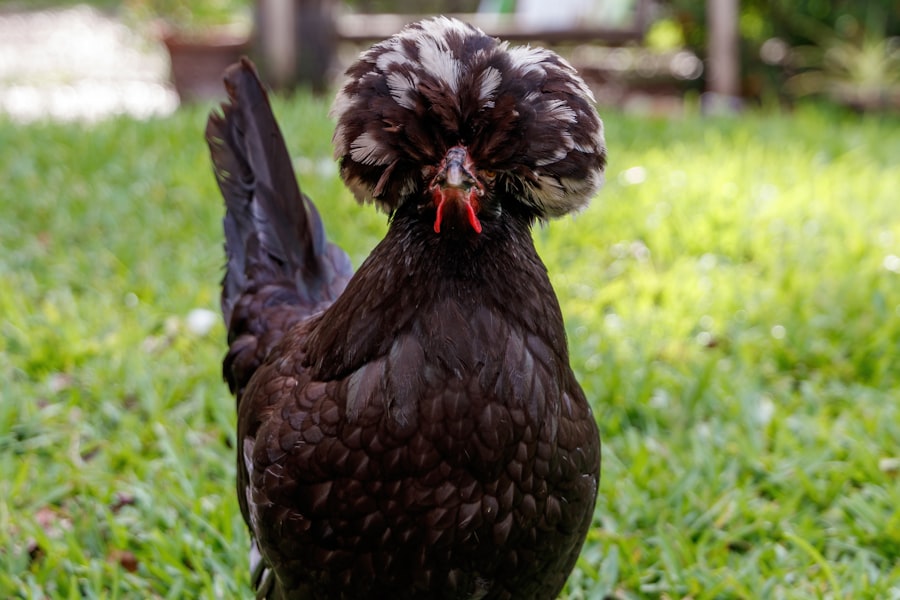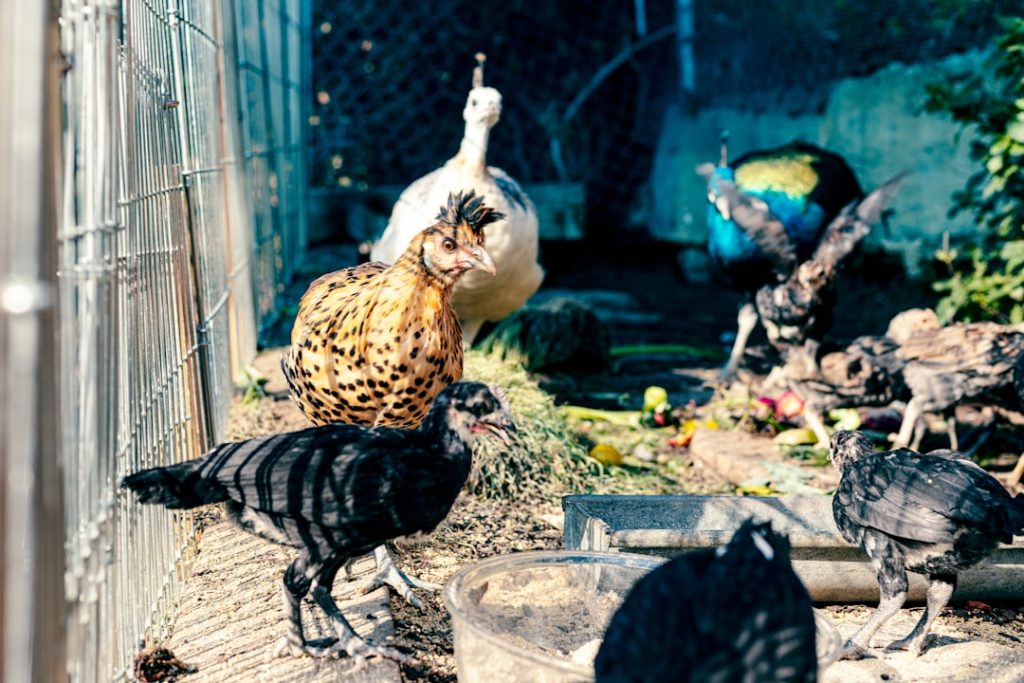When keeping chickens, it is essential to understand and comply with local regulations. These rules vary by city and municipality, covering aspects such as zoning laws, permitted flock sizes, coop dimensions, and required distances from neighboring properties. Some areas may prohibit chicken-keeping entirely, while others have specific guidelines.
Noise ordinances can also affect chicken ownership, particularly if roosters are involved. Additionally, regulations may exist regarding waste disposal and coop maintenance. Familiarizing oneself with these local laws helps avoid fines and legal issues while promoting responsible chicken ownership.
Researching and adhering to these regulations ensures a positive experience for both the chicken keeper and the community. It is crucial to investigate all applicable rules before establishing a flock to maintain compliance and foster good relationships with neighbors and local authorities.
Table of Contents
- 1 Factors that determine the number of chickens allowed
- 2 Zoning and property size requirements
- 3 Permits and licenses for keeping chickens
- 4 Health and safety considerations
- 5 Potential restrictions on roosters and breeding
- 6 Tips for responsible chicken ownership
- 7 FAQs
- 7.1 What is the general rule for keeping chickens?
- 7.2 How many chickens are you allowed to keep in urban and suburban areas?
- 7.3 What factors may affect the number of chickens allowed?
- 7.4 Are there any restrictions on keeping chickens in certain areas?
- 7.5 What are the potential consequences of exceeding the allowed number of chickens?
Key Takeaways
- Local regulations vary widely and it’s important to understand the specific rules in your area before keeping chickens.
- The number of chickens allowed is often determined by factors such as property size, zoning regulations, and proximity to neighboring properties.
- Zoning laws and property size requirements can dictate whether or not you are allowed to keep chickens, and how many you can have.
- Permits and licenses may be required for keeping chickens, so it’s important to research and obtain the necessary paperwork.
- Health and safety considerations are crucial when keeping chickens, including proper coop maintenance and disease prevention.
- Some areas may have restrictions on keeping roosters and breeding chickens, so it’s important to be aware of these limitations.
- Responsible chicken ownership includes proper care, attention to local regulations, and being considerate of neighbors.
Factors that determine the number of chickens allowed
Zoning Laws and Property Size
The number of chickens allowed on a property is often determined by a variety of factors, including zoning laws and property size. Zoning laws may dictate the maximum number of chickens allowed on a property, as well as any specific requirements for coop size and placement. Property size can also play a role in determining the number of chickens allowed, as larger properties may have more flexibility in terms of the number of chickens that can be kept.
Additional Factors to Consider
In addition to zoning and property size, some areas may also consider factors such as noise and odor when determining the number of chickens allowed. If you live in a densely populated area, there may be stricter limits on the number of chickens allowed in order to minimize potential disturbances to neighbors.
Importance of Research and Compliance
It’s important to research and understand these factors before starting your own flock, as exceeding the allowable number of chickens can result in fines and legal issues. By being aware of these factors and adhering to local regulations, you can ensure that your chicken-keeping experience is a positive one for both you and your community.
Zoning and property size requirements

Zoning laws and property size requirements play a crucial role in determining whether or not you can keep chickens on your property. Zoning laws dictate what types of activities are allowed in different areas, and this can include regulations regarding the keeping of livestock such as chickens. Some areas may have specific zoning designations for agricultural use, which may allow for the keeping of chickens, while other areas may have strict residential zoning that prohibits the keeping of livestock altogether.
Property size requirements can also impact your ability to keep chickens, as larger properties may have more flexibility in terms of the number of chickens allowed. In some cases, there may be minimum property size requirements for keeping chickens, so it’s important to research and understand these regulations before starting your own flock. By familiarizing yourself with zoning and property size requirements, you can ensure that you are in compliance with local laws and avoid potential fines and legal issues.
Permits and licenses for keeping chickens
In addition to understanding local regulations, it’s important to be aware of any permits or licenses that may be required for keeping chickens. Some areas may require a permit for the keeping of livestock, including chickens, while others may have specific licensing requirements for owning and maintaining a chicken coop. These permits and licenses are typically designed to ensure that chicken owners are following proper health and safety guidelines, as well as any specific regulations regarding the keeping of chickens.
Before starting your own flock, it’s important to research and understand any permit or licensing requirements that may apply to your area. Failure to obtain the necessary permits or licenses can result in fines and legal issues, so it’s crucial to be proactive in this regard. By obtaining the required permits and licenses for keeping chickens, you can ensure that you are in compliance with local laws and regulations while also being a responsible chicken owner.
Health and safety considerations
When keeping chickens, it’s important to prioritize health and safety considerations for both the birds and their human caretakers. Proper sanitation and hygiene practices are crucial for preventing the spread of disease among the flock, so it’s important to regularly clean and maintain the chicken coop and surrounding areas. Additionally, providing access to clean water and nutritious feed is essential for maintaining the health of your chickens.
In terms of safety, it’s important to secure the chicken coop and outdoor run to protect the birds from predators such as foxes, raccoons, and birds of prey. Additionally, it’s important to be mindful of potential hazards within the coop itself, such as sharp objects or toxic substances. By prioritizing health and safety considerations, you can ensure that your chickens are well cared for and that your chicken-keeping experience is a positive one.
Potential restrictions on roosters and breeding

Research Local Regulations
Some areas may have specific restrictions on the keeping of roosters due to noise concerns, so it’s important to research and understand these regulations before adding a rooster to your flock. Additionally, some areas may have restrictions on breeding chickens, especially if it results in an excessive number of birds on the property.
Avoid Fines and Legal Issues
It’s important to be aware of these potential restrictions in order to avoid fines and legal issues while also being a responsible chicken owner.
Responsible Breeding Practices
If you are interested in breeding chickens, it’s important to do so responsibly and with consideration for local regulations. This may include obtaining any necessary permits or licenses for breeding activities, as well as ensuring that you are not exceeding any allowable limits on the number of chickens allowed on your property.
Compliance with Local Laws
By being mindful of potential restrictions on roosters and breeding activities, you can ensure that you are in compliance with local laws while also being a responsible chicken owner.
Tips for responsible chicken ownership
Responsible chicken ownership involves more than just following local regulations – it also requires a commitment to providing proper care and attention to your flock. This includes regular health checks for each bird, providing access to clean water and nutritious feed, and maintaining a clean and safe living environment. Additionally, it’s important to monitor the behavior and well-being of your chickens on a regular basis in order to identify any potential health issues or concerns.
In addition to providing proper care for your flock, responsible chicken ownership also involves being considerate of your neighbors and community. This includes minimizing noise disturbances from roosters (if allowed) and properly disposing of chicken waste in order to prevent odors or other nuisances. By being a responsible chicken owner, you can ensure that your flock is well cared for while also being a positive member of your community.
In conclusion, understanding local regulations, zoning and property size requirements, permits and licenses for keeping chickens, health and safety considerations, potential restrictions on roosters and breeding, and tips for responsible chicken ownership are all crucial aspects of successfully keeping chickens. By familiarizing yourself with these factors and adhering to local laws and regulations, you can ensure that your chicken-keeping experience is a positive one for both you and your community.
If you’re wondering how many chickens you are allowed to keep, you may also be interested in learning about the appropriate size for a chicken coop door. According to a helpful article on Poultry Wizard, the size of the door is an important factor to consider when building or purchasing a coop for your chickens. You can read more about it here.
FAQs
What is the general rule for keeping chickens?
In most urban and suburban areas, there are regulations on the number of chickens you are allowed to keep on your property. These regulations are typically set by local government authorities.
How many chickens are you allowed to keep in urban and suburban areas?
The number of chickens allowed to be kept on a property varies depending on the specific regulations of the local government. It is important to check with your local zoning or animal control department to determine the specific rules for your area.
What factors may affect the number of chickens allowed?
Factors that may affect the number of chickens allowed on a property include the size of the property, proximity to neighboring properties, and specific zoning regulations for the area.
Are there any restrictions on keeping chickens in certain areas?
Some areas may have restrictions on keeping chickens, such as prohibiting roosters due to noise concerns. Additionally, homeowners’ associations may have their own rules regarding keeping chickens.
What are the potential consequences of exceeding the allowed number of chickens?
Exceeding the allowed number of chickens on a property may result in fines or other penalties imposed by local authorities. It is important to adhere to the regulations to avoid any potential consequences.
Meet Walter, the feathered-friend fanatic of Florida! Nestled in the sunshine state, Walter struts through life with his feathered companions, clucking his way to happiness. With a coop that’s fancier than a five-star hotel, he’s the Don Juan of the chicken world. When he’s not teaching his hens to do the cha-cha, you’ll find him in a heated debate with his prized rooster, Sir Clucks-a-Lot. Walter’s poultry passion is no yolk; he’s the sunny-side-up guy you never knew you needed in your flock of friends!







